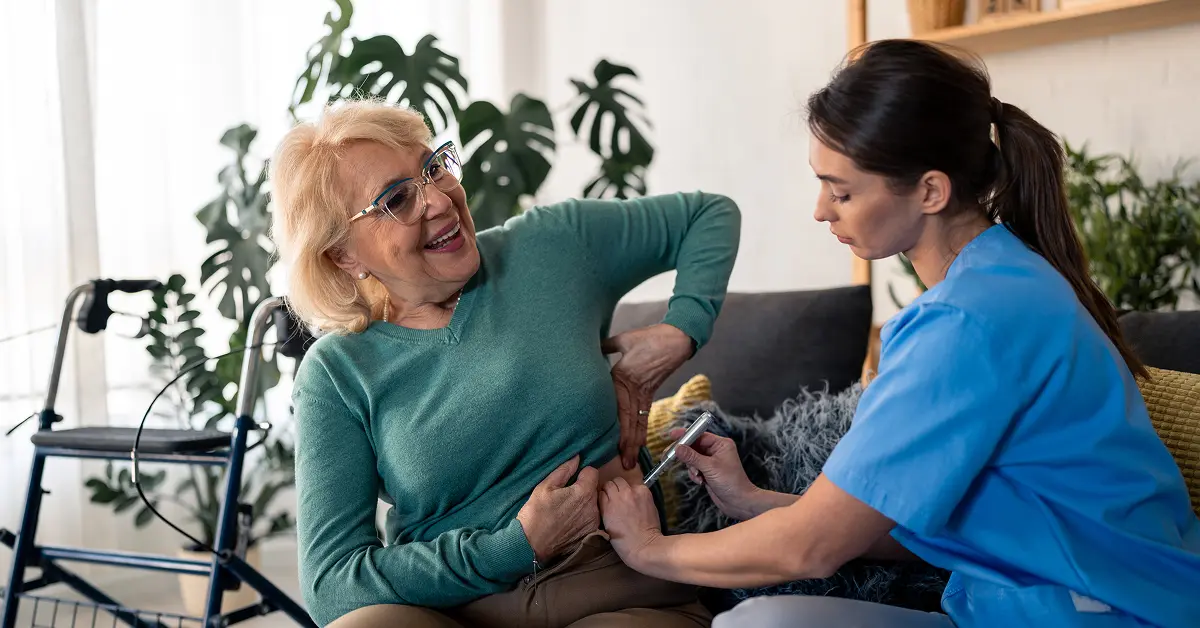As our parents age, their health and daily living needs often evolve. In India, with the increasing number of nuclear families and working professionals, providing dedicated elder care at home is becoming more essential than ever. Two primary options stand out—Home Nursing Services and In-Home Caregiver Services. While both aim to support the elderly in their familiar home environment, they differ significantly in purpose, scope, and qualification.
Understanding the difference between these two services is crucial when deciding what’s best for your parent. This blog breaks down the key distinctions, benefits, and factors to consider while choosing between a home nurse and in-home care in India.
What is Home Nursing?
Home nursing services involve the medical care provided at home by qualified nurses or certified healthcare professionals. This is ideal for elders who are recovering from surgery, suffering from chronic illness, or need constant medical supervision.
Typical Services Provided:
- Wound dressing and post-operative care
- IV injections or medication administration
- Catheter and colostomy care
- Vital sign monitoring (BP, sugar, oxygen levels)
- Physiotherapy and mobility assistance
- Palliative or end-of-life care
Who Needs a Home Nurse?
- Elderly parents recovering from surgery or illness
- Patients with chronic diseases like cancer, diabetes, Parkinson’s, or stroke
- Bedridden seniors who need medical attention
- Seniors on palliative care or needing pain management
What is In-Home Care?
In-home care, also known as elder companion care or attendant care, focuses on non-medical assistance and daily activities. Caregivers in this role may not be medically trained, but they are skilled in supporting daily routines and emotional well-being.
Typical Services Provided:
- Bathing, dressing, grooming, and hygiene
- Feeding and meal preparation
- Light housekeeping and laundry
- Medication reminders (not administration)
- Companionship and emotional support
- Assistance with mobility and toilet needs
Who Needs In-Home Care?
- Elderly parents who are relatively healthy but need support
- Seniors with early-stage dementia or memory loss
- Independent elders who live alone and require companionship
- Parents recovering from illness but no longer in need of clinical care
Key Differences at a Glance
| Feature | Home Nurse | In-Home Caregiver |
|---|---|---|
| Training | Certified medical nurse (BSc/GNM/ANM) | Non-medical caregiver or attendant |
| Focus | Medical and clinical care | Daily living and emotional support |
| Cost | Higher due to qualifications | Relatively affordable |
| Services | IVs, injections, wound care, monitoring | Bathing, grooming, companionship |
| Duration | Often temporary (post-surgery or chronic illness) | Long-term daily assistance |
| Suitability | For complex medical needs | For basic help and support |
Factors to Consider Before Choosing
Choosing between a home nurse and in-home care depends on your parent’s health condition, emotional needs, and family dynamics. Here's what you should assess:
A. Health Condition
If your parent needs medical attention, choose a home nurse. For support with routine tasks, in-home caregivers are enough.
B. Duration of Support
Temporary recovery: home nurse. Ongoing elderly support: in-home caregiver.
C. Budget
Home nurses usually charge ₹700 to ₹1,500 per visit/day, or more for 24-hour service. In-home caregivers charge around ₹500 to ₹1,000 per day depending on duties and location.
D. Emotional and Social Needs
Lonely parents or those suffering from mild depression benefit from regular companionship, something in-home caregivers are trained for.
E. Safety and Supervision
Make sure you hire from certified elder care providers who conduct background checks, especially for long-term live-in support.
Popular Providers in India for Elder Care Services
- Portea Medical – Offers both home nursing and caregiver support
- Anvayaa – Personalized elder care services in Hyderabad, Bangalore, Chennai
- Zorgers – Comprehensive nursing and elder care in major cities
- Nightingales Home Health Services – Offers medical home care across South India
Make sure to review online testimonials, check licenses, and interview caregivers before finalising.
Combining Both Services
Sometimes, a combination of both services might be the best choice. For example:
- After a surgery, you can start with a home nurse for 1–2 weeks, then switch to a caregiver once your parent is stable.
- A home nurse can visit periodically for medical checkups, while a caregiver stays full-time to handle daily care.
This hybrid approach ensures both health and emotional support, creating a balanced and cost-effective care model.
Final Thoughts: What’s Right for Your Parent?
There is no one-size-fits-all answer. Choosing between a home nurse and in-home care depends on your parent’s unique needs. In urban India—especially in cities like Bengaluru, Hyderabad, Mumbai, and Vizag—both services are becoming more accessible and affordable.
Ask yourself:
- Does my parent have medical needs or just need support?
- Can I afford long-term nursing care, or is daily assistance enough?
- Is emotional companionship important at this stage?
Involving your parent in the decision also ensures dignity and respect in the process. Whether you choose a home nurse or an in-home caregiver, the goal is the same—to ensure comfort, dignity, and well-being in the golden years of life.
Conclusion
Elder care in India is evolving, and so are the expectations of families. Knowing the clear distinction between home nursing and in-home care will help you make an informed, compassionate decision for your ageing parent. Prioritise quality of care, safety, and emotional well-being, and your loved ones will thrive in the comfort of their own home.
Contents
Our 24*7 services
Latest Posts
- What Is Respite Care and Why Is It Important
- Affordable home care for senior citizens in India
- Caring for Seniors with Dementia or Alzheimer's at Home
- Senior Caregiving A Guide for Every Family
- How to Write a Caregiver Resume That Gets You Hired
- How Care After Hospital Discharge Speeds Up Recovery at Home
- How to Get Home Health Care for Seniors Through Medicare
- What Does a Senior Citizen Caregiver Really Do at Home
- How to Care for Elderly Parents with Alzheimer’s or Dementia
- How to Get 24-Hour Care for Seniors at Home


